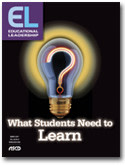A few years ago, I had a student (let's call him Adam) in my 8th grade science class. Adam's trail of institutional paperwork listed low grades, persistent disciplinary referrals, and a history of behavior modification plans. But when it came time to study simple machines, Adam could not be stopped. Under Adam's careful watch, we hooked a block-and-tackle system from the ceiling and lifted everything we could find. With his guidance, we tore apart my bicycle during lunch and reassembled it with great precision and fresh grease. All of this as the larger school system labeled Adam a failure. How was that possible?
Matthew Crawford articulates an answer to that question in Shop Class as Soulcraft. After training as a political philosopher at the University of Chicago and working as head wonk at a Washington, D.C., think tank, Crawford left abruptly to open a motorcycle repair shop. His work at his previous job, he writes, "consisted of making arguments about global warming that just happened to coincide with the positions taken by the oil companies that funded the think tank." Schooled broadly in the liberal arts, he was dissatisfied with this highly illiberal aspect of his work.
For Crawford, modern society is full of trappings that diminish our capacity for control over our lives. Instead, we are subjected to a world where everything has become "idiot-proof": from infrared faucets and our cars' engine warning lights to the impoverished notion of individual creativity involved in Build-a-Bear workshops. Rather than making our world better, these technologies alienate us from any sense of control over our own material existence.
Crawford believes we should rethink how we value working with one's hands and reclaim that skill as a valid intelligence. Shop Class as Soulcraft serves as an example of how to blend the skills of abstraction with the demanding nature of the trades. Crawford weaves together personal narratives about the intensity of motorcycle maintenance with rich political and philosophical history. In diagnosing engine problems he writes, "Piston slap may indeed sound like loose tappets, so to be a good mechanic you have to be constantly attentive to the possibility that you may be mistaken. This is an ethical virtue."
Whether intentional or not, Crawford's arguments challenge much about our factory-model schools, which value some intelligences and —alize others. The passive consumption and retrieval of knowledge for narrow standardized exams do little to help. Instead of encouraging students to reach their capacity as unique learners, we teach students to consume a limited curriculum. How can we then expect students to practice freedom and independence in a complex and globalized world?
Of course, this argument has been made before. In 1899, John Dewey wrote in The School and Society thatfrom the standpoint of the child, the great waste in the school comes from his inability to utilize the experiences he gets outside the school in any complete and free way within the school itself; while, on the other hand, he is unable to apply in daily life what he is learning about at school. That is the isolation of the school—its isolation from life. (p. 89)
By falsely separating work from knowledge, we have also forced students to pursue the either/or: Be career ready or be college ready—but don't be both.
Crawford has written this book during a period of social and political unrest. As teachers, we are told that our students will compete with the rest of the world for scarce jobs and resources. We are a nation at risk according to the dominant economic logic. But for Crawford, the risk is much more pernicious: We are becoming incapable of taking care of ourselves or responding to the conditions of our lives.
In my own life, I study education for sustainability. Our students grow their own food, build and fix the technologies that they use, and learn about environmental justice and natural resource conservation. Dealing with such vexing problems requires resilient students who can both adapt to changing local conditions and understand global complexity. I want students who can fix an engine, tend the soil, and weigh ethical tensions. I want students like Matthew Crawford.
Now, how do we build these rich learning environments in the current education landscape? Because Crawford is not an educator in the formal sense, we are left as readers to make those decisions for ourselves.

